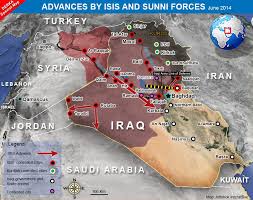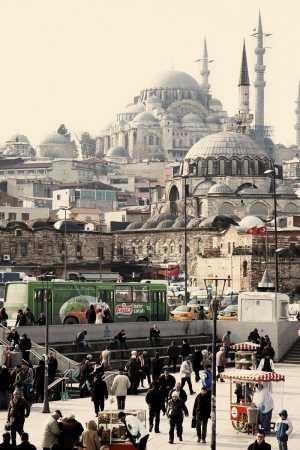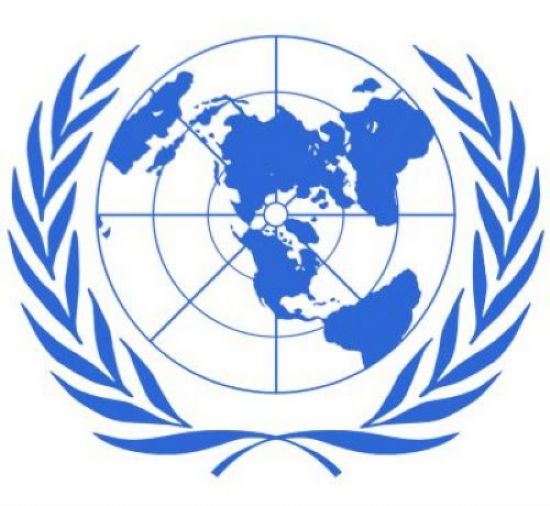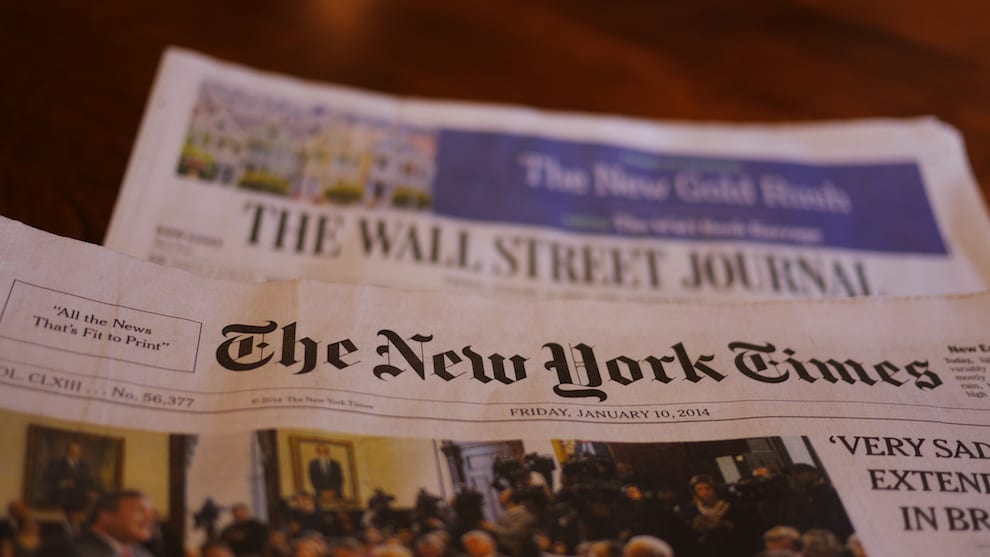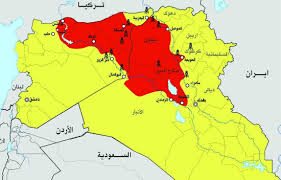
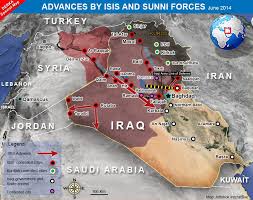 By Prof. Muhammad Shamsaddin Megalommatis
By Prof. Muhammad Shamsaddin Megalommatis
When on May 27th 1960 the first coup d’ état was staged in Turkey, the President of the country Celal Bayar, the Prime Minister Adnan Menderes, several ministers, and many Democratic Party members were arrested. At the same time, the Milli Birlik Komitesi (National Unity Committee) forced 235 generals and more than 3000 commissioned officers to retirement. In addition, no less than 500 judges and public prosecutors and 1400 university faculty members were removed in an effort to purge the corrupt regime that Celal Bayar and Adnan Menderes had tried to install for no less than 14 years ever since the ominous Democratic Party was incepted in 1946 as a tool of political perversion and coercion, and as a means of destruction of the state of Kemal Ataturk. Some of the arrested were sentenced to death, whereas others were condemned to life imprisonment only to be later released. The fact that there is now a Celal Bayar University at Manisa demonstrates that Turkey is populated by people whose memory is short.
Shoot Erdogan dead now!
In the next coup d’ état, President Erdogan must be shot dead at once. The Turkish army generals and colonels and the Turkish statesmen, who will stage it, and the businessmen, academics and journalists, who will support it, will have to arrest even fewer officers, judges, and public prosecutors. In striking contrast with the 1960 coup d’ état, the forthcoming one must offer people the chance to express their indignation for the disastrous manner in which Turkey’s affairs have been managed by the AKP (Justice and Development Party) gangsters over the past 12 years. In full coordination with the army and from the very first moment, Turkish patriots, secular activists, and supporters of the national interests of the country must take to the streets along with the tanks and the soldiers, block the offices of the present unrepresentative government, destroy the headquarters and offices of AKP, arrest and execute the villainous AKP cadres on the spot where they may appear, and at the same time, prevent Erdogan’s corrupt and fanatic followers from appearing in public.
All telephone lines, fixed and mobile, and Internet connection must be blocked, and radio stations and TV channels closed down before the establishment of the new national order, and until the national purgatory administration takes over. All embassies must be kept under garrison, and foreign diplomats must be severely isolated from what will be going on in the streets, the barracks, and the governmental buildings. The members of the right and center-left secular parties of the opposition and their youth organizations must immediately form militias ready to cooperate with the army, isolate AKP strongholds, and implement the new order across Turkey.
Effectiveness in eliminating the guilty and the ignorant, the dangerous and the ominous will matter greatly, and this means that the ruling AKP figures and their first-degree relatives must all be executed without trial and within the hour. With them dead, and with their pictures displayed on the only governmental TV channel allowed to operate managed by a new administration and put under army control, AKP lunatics will have little chance to fight for anything. A second level of purge must eliminate within less than a week hundreds of thousands of present AKP supporters, radical sheikhs and imams, all pro-AKP journalists, whereas some thousands of newly built mosques must simply be rapidly ruined and irreversibly turned to nice small parks.
Contrarily to what happened in 1960, when a coup put at last an end to the chaotic situation that lasted 14 years, today’s Turkish generals and colonels must understand that the country cannot afford to wait for 14 years of nefarious self-destruction carried out by an ignorant, pseudo-Islamic, villainous political class (AKP) that hates Turkey, before they decide to stage the much needed coup d’ état; (2002 + 14) 2016 is unfortunately a faraway horizon. In very little time, Turkey will have already gone beyond the point of no return. There is no parallel that can be drawn between 1960 and 2014. What makes now the difference is the very wide array of critical international implications that all take place around Turkey; precipitated developments are expected to occur in the next few months and this imposes a immediate regime change in Ankara.
Turkey – one location encircled by fire
In the present conjuncture, Turkey faces a multifaceted explosive situation in
1 – its southern borders (Assad’s Syria / the fake Caliphate / PKK being strengthened through its contacts with the fake jihadist state / North Iraqi Yazidi refugees threatened to extinction by the fake jihadists / North Iraqi Turkmen persecuted by the so-called Kurdish militias of Barzani and Talabani / North Iraqi Aramaean Christians facing existential threat at the hands of the fake jihadists / the North Iraqi so-called Kurdish Regional Government, its aspirations for independence, and the Israeli support for this case / the final decomposition of Iraq / Iran’s involvement in Iraq)
2 – its eastern borders (the possibility of a nuclear Iran / the eventuality of an Israeli attack against Iran’s nuclear plants / the Azeri, Gorani (pseudo-Kurdish) and Baluch minorities’ struggle to achieve independence and secession from Iran / the thorny relations with Armenia that harbors a racist anti-Turkish irredentism while being a close ally of the Zionist state / the spectrum of an Azeri-Armenian war over Nagorno-Karabakh / Israel’s infiltration in Azerbaijan which is the result of calamitous mistakes perpetrated by earlier AKP administrations, and of Erdogan’s pathetic ignorance of, and idiotic approach to, foreign policy / the downgrading spiral of the Azeri – Iranian relationship which is the result of Zionist influence over Baku / the troublesome relations between Georgia, Abkhazia, South Ossetia, and Russia / UK-Saudi-incited terrorism in Daghestan and other parts of the Russian Caucasus region / the consideration of EU and/or NATO membership extension to Georgia and Azerbaijan as part of the Anti-Russian policies of the West)
– its northern borders (Russia, Autonomous Republic of Crimea, Lugansk People’s Republic, Donetsk People’s Republic, Ukraine, Transnistria, and Moldova – in fact, there are ongoing, overt or covert, hostilities in all 7 states located north of Turkey and on the northern shorelines of the Black Sea and the Sea of Azov)
– its south-western borders (war between the two Cypriot states may be the result of the Anti-Turkish pact made between Israel and South Cyprus, due basically to the deterioration of the Turkish-Israeli relationship which was another irrelevant foreign policy choice made by the disastrous AKP administration – this time the pretext for war can be fabricated via Oil and Gas exploration efforts across NE or NW Cyprus’ coastline)
– its western borders (the current situation in the Balkans being already complicated among Albania, Kosovo and Serbia, among Sanjak, Montenegro, Bosnia and Serbia, among Macedonia, Greece and Bulgaria, as well as between Turkey and Greece)
When conflicts occur and strengths are pulled all around a specific country, the basic notions of geo-strategics signal the end of the country’s territorial integrity, and therefore the only possible option left to the local center of power or administration is partly expansion and forceful annexation of an adjacent territory up to the point of definite balance change in the direction of the expansion.
For today’s Turkey the most appropriate direction for partly expansion and annexation of adjacent territory is the South, and the chaotic lands beyond its southern frontiers, so in the present article I will focus on this subject.
Turkey’s Syrian policy – Historical depth and missed opportunities
It was quite silly for the successive Erdogan administrations to cooperate with the criminal Western powers that fomented discord, strife, civil war, and utter genocide in Syria; and it was silly, because it had already been clear that the same powers intended to do exactly the same to Turkey itself – simply at a later stage. But it was even more idiotic to cooperate with the West and in parallel prepare other, particular plans, thinking that the Western agents, who are all over the place in Turkey because of AKP governmental inadequacies, will not take good note of them.
For Turkey’s national interests, Ankara should have either acted unilaterally before 2012 invading Syria (after a theatrical episode that could have been fabricated and staged on this purpose) or blocked decisively every Western effort to penetrate Syria and threaten the Alawi regime of Bashar al Assad that has been enthusiastically supported by the Aramaean Christian minority.
The Western bias over Syria finds at its antipodes the Western bias over Armenia. And a shrewd Turkish foreign minister should have exploited the matter – contrarily to the inconsistencies that characterized all persons who held this position after 2002. Either one of two things happens:
Either Turkey is an independent state unrelated to the Ottoman Empire, and it cannot therefore interfere in Syria’s affairs, but in this case all accusations about the so-called Armenian Genocide must be removed as irrelevant and inadmissible
Or Turkey is the successive state form of the Ottoman Empire, and it can be reproached for what happened to the Ottoman Armenians, but in this case, Ankara has the right to interfere and arrange the affairs of its former province.
If Erdogan’s Syrian policy failed, this is due to a detrimental mistake of conceptualization. In the first place, all AKP cadres never realized how their minds have been prefabricated in a calamitous, self-destructive manner that prevents them from either thinking out of the box or realizing how self-destructive they are for any place they may govern. In fact, the formation of AKP in Turkey consists in a Western effort to colonize Turkey via the bogus ideology of Islamism, which is a byproduct of the Freemasonic Western Orientalism. The fake ideology was composed in the Orientalist ateliers of France and England during basically the 19th c. and thence projected onto the targeted populations that the Western countries wanted to destroy. Kemal Ataturk totally blocked this system, throwing it out of Turkey, but after 1946, due to Western Intelligence, started a slow process of infiltration of which the AKP cadres are the unfortunate and unconscious product.
It is well known that, at the time of its inception, Islamism was a vicious theoretical opposition to the Ottoman Empire. Who else may have planned more schemes to dissolve the Government of Islam (Caliphate) than the Western colonials? And who contributed to the ultimate fall and destruction of Islam more than the ignorant Arabic speaking mob that – from Khartoum to Damascus and from Algiers to Madinah – supported the schemes of the enemies of Islam? The colonization process, which started in Egypt (1798) and Algeria (1830) and involved the diffusion of Islamism and several other false ideological systems, misconceptions and systematized ignorance, was planned by the villainous Freemasonic class of Western Europe and North America to be completed with Turkey’s islamization. By fervently supporting the rise of AKP, the Western powers wanted to capture Turkey – the only part of the Ottoman Empire that had remained thanks to Kemal Ataturk unaffected by the Islamist abomination and free of the colonial falsehood and biases.
Since its inception, AKP was contaminated with the colonial ideology of Islamism; worse, it was also plagued with a certain dose of Pan-Arabism, another vicious theory and excruciating distortion of the historical reality.
Syrians, Lebanese, Palestinians, Jordanians, Iraqis, Kuwaitis, Qataris and Emiratis are not Arabs. They are Arabic-speaking Aramaeans. By ascribing themselves to Pan-Arabism and Arab Nationalism, the different colonial and postcolonial governments of the aforementioned eight (8) states simply blocked and canceled forever a normal nation building effort in their realms, thus preventing themselves from becoming emancipated nations. In fact, they destroyed themselves, and we see now the results of the useless and worthless existence of these fake states over the past nine (9) decades.
Kemal Ataturk did in Turkey exactly what the various local administrations did not do in the aforementioned eight (8) states. And Turkey was successful in becoming a fully-fledged nation in less than 15 years (1923-1938).
But by ascribing themselves to Pan-Arabism and Arab Nationalism, the idiotic AKP elites, fake journalists, and bogus-intellectuals, they destroyed Turkey’s chances in the region. One may contend that AKP administrations did not promote Turkey’s arabization in any sense; this may appear correct, but it is not. In fact, they contributed to the arabization of Turkey’s foreign policy, by accepting the existence of the colonial fake states at face value (which cannot be accepted), and by dealing with them, as if these states were normal and not mere technical entities.
The fake, so-called Arab states, these lowly and pathetic realms of false emirs, bogus-kings, bloody tyrants, blind intellectuals like Michel Aflak, ignorant imams, and uneducated (and therefore stupidly fanaticized) mobs were fabricated by the West only for later use and stage management. These fake technical entities were produced in the 1920s (as Egypt earlier and their NW African counterparts later) in order to serve their colonial masters’ plans in the 2010s. The only proper policy that Turkey could have had in regard with these eight (8) realms was Kemal Ataturk’s policy for Turkey itself. Turkey should therefore have promoted the diffusion of Aramaic Syriac language in these countries, while contributing to a nation-building effort in which the natives in the different modern Arabic vernaculars would abandon their jargons and learn their real historical language, Aramaic, that their forefathers had forgotten because of their acceptance of Islam, which brought about a linguistic arabization.
By learning Aramaic Syriac, while keeping Classical Quranic Arabic as their religious language, Syrian, Iraqi, Lebanese, Jordanian, Palestinian, Kuwaiti, Qatari and Emirati Muslims would feel that they are one nation along with their Christian compatriots who preserved Aramaic Syriac as their native language. This would have minimized if not eliminated the division between Sunni and Alawi denominations in Syria, in total opposition to the Western divisive and corrosive policies that target the ultimate destruction of those realms.
Turkey’s Iraq policy
Even more importantly, in Iraq, the proper nation-building effort with Aramaic Syriac as national language would have strengthened the Shia Mesopotamian identity and the anti-Iranian stance which had characterized these populations for many long centuries when they wholeheartedly sided with the Ottoman Sunni Sultan against the Iranian Shia Shah – something that the Satanic, Freemasonic governments and diplomats of France, England, Holland, Canada, Australia, and America did their ingenious best to obscure and conceal.
In Turkey, there is a tendency to believe that, before the rise of AKP to power, the successive governments disregarded and were detached from the country’s southern neighbors and, after the rise of AKP to power, the Islamist administrations, in opposition to the earlier foreign policy, implemented a rapprochement. This fantasy was highly promoted by the global mass media, so one can already be sure that it pleased the powers-that-be. In general, by shifting the interest and the mindset of the average people from the true to the mythical, the Freemasonry-controlled global mass media make sure that the essential is always kept secret and concealed.
What is important to assess with respect to the aforementioned options of Turkish foreign policy toward Turkey’s former provinces and current neighbors is that both axes of policy were very wrong and dramatically ineffective.
Turkey’s geostrategic position as a bridge between worlds makes it versatile. Sometimes the territory of Turkey can be the location of a very strong and powerful government that controls faraway lands (Hattushilis III, Antiochus Epiphanes, Justinian I, Suleyman Magnificent). Sometimes, the same territory can be divided into small states and principalities (9-7th c. BCE, 1st. c. BCE, 11th – 12th c. CE). This is of seminal importance.
Any historical government with its seat on Turkey’s present territory is successful and prolongs its duration, only if it expands its ideology, Weltanshauung, and world vision among the people inhabiting the surrounding lands. As long as both types of Turkish administrations, those before and those after 2002, did not act according to the aforementioned, both policies are pure failures.
Turkey’s ideal time for expansion was back in the mid 90s; by hesitating to implement a series of measures that would lead to territorial expansion, the Turkish military and statesmen heralded the country’s implosion. Yet, immediately after the first Iraq war (comically re-baptized Gulf war by the global mass media), Turkey should have created the necessary pretext for the invasion of Mosul, Arbil and Kirkuk. Then, the Turkish army should have advanced to Baghdad irreversibly annexing the largest part of Iraqi territory first and later the rest, before fully absorbing it and restructuring it all. Any opposition to Turkey, by its NATO allies would be untenable due to the fact that, through its annexation to Turkey, Iraq would automatically become NATO member state territory.
In Mesopotamia (which is the correct name instead of the fake modern term ‘Iraq’), Turkey’s nation-building effort should have been based on
– strong alliance with the Turkmen of Kirkuk and establishment of a well-supported return policy addressed to all the Turkmen who were forced to flee due to the colonial & postcolonial persecution and to the arabization policies carried out about by the fake kingdom and the bogus republic of Iraq
– total commitment to the success of a return policy established for all Aramaean Christian and Mandaean populations that were forced to exile in the last three decades of the Ottoman Empire and during the calamitous decades of ‘royal’/’republican’ rule. In this regard, the reconstruction and rehabilitation of the Qudchanis Patriarchate of the ‘Nestorian’ Christianity / in Konak / Hakkari is a must.
– full support of a nation building effort for all ethno-religious groups in the Zagros Mountains and the Transtigritane plains that have been viciously misnamed ‘Kurds’ by the colonial gangsters of England, France and America, whereas they are not one nation but many, namely Yazidis, Shabak, Bahdinani, Faili, Hawleri, Sorani, Gorani, Ahl-e Haq
– comprehensive education for the Sunni dialectal Arabic speaking group that should be offered compulsory, 12-year, primary & secondary education in Aramaic Syriac in order to be fully incorporated into one nation with the Christian Aramaeans of Iraq and Syria
– similar formative policy applied to the Shia dialectal Arabic speaking group that should be offered compulsory, 12-year, primary & secondary education in Aramaic Syriac in order to be fully incorporated into the Aramaean Syro-Mesopotamian nation
Global mass media portray Turkey as a worthless ally for US, NATO
In spite of the aforementioned failures, oversights, and missed opportunities, Turkey is facing now a major challenge. Following the emergence of the fake Caliphate, the evil establishment of AKP did neither specify nor make clear what policy they intended to pursue for what is by definition an existential threat for the state of Kemal Ataturk.
The fake Caliphate (however it may be named, ISIL, ISIS, IS, etc., etc., etc.) controls more than half of Turkey’s southern borderline, yet the unrepresentative AKP regime in Ankara has nothing to say. The lack of freedom of press in Turkey under the AKP regime is impressive; this is due to the tolerant stance of the army and to the decision of the top army officers to take distance from the government. No one fights against, rejects or denounces the calamitous AKP non-policy which risks dismembering Turkey.
While avoiding to focus on the essential, Murat Yetkin, writing for Hurriyet ), demands that Turkey does not turn out to be a base for the impotent and worthless Muslim Brotherhood, which by definition is not a group of terrorists but a bunch of idiots who were totally unable to run the country because of their fake religious faith and disproportionate ignorance. This article looks like an irrelevant understatement in view of Turkey’s troubles in the South.
Yet, it is not the Islamic Brotherhood that controls a territory almost one third (1/3) the size of Turkey at the southern borders of the country, but the fake Caliphate. The immediate destruction of the fake Caliphate of the monkeyish Muslims should have been the target no 1 for all Turks.
AKP’s unreasonable, suspicious, and self-catastrophic reluctance to make of Turkey a major contributor into the US-led effort against the fake Caliphate becomes the reason for fiery anti-Turkish publications in the Wall Street Journal, yet the Turkish army has nothing to say…
A certain historical depth is added to the present attitude of the Turkish administration, which means that serious lobbies are hidden behind a text that states the following: “the reality [is] a Turkish government that is a member of NATO but long ago stopped acting like an ally of the U.S. or a friend of the West. Former U.S. Ambassador to Turkey Francis Ricciardone declared this week that the Turkish government “frankly worked” with the al-Nusrah Front—the al Qaeda affiliate in Syria—along with other terrorist groups. Ankara also looked the other way as foreign jihadis used Turkey as a transit point on their way to Syria and Iraq. Mr. Ricciardone came close to being declared persona non grata by Prime Minister Recep Tayyip Erdogan’s government last December”. https://www.wsj.com/articles/our-non-ally-in-ankara-1410561462#printMode)
However, the included threats must be perceived very clearly; so low Turkey’ reputation has fallen that the WSJ columnist defines Turkey as a non-US ally, determines the US military bases in Turkey as useless, and even urges their transfer to another location ). It would be wise to focus more on this highly informative text; its author comes up with the suggestion of establishing a US air base in the mountains of the North Iraqi ‘Kurdish’ zone which does not even constitute an independent state!
The fact that an idiotic text was immediately published in Hurriyet in guise of response to the above groundbreaking publication ) shows only corrupt the major media are in Turkey and testifies to worthless and catastrophic compromises made between the Turkish media magnates and the ominous AKP administration.
Turkey’s uselessness as a US / NATO ally has rather become a global media trend instead of being an isolated element; one can consider it as a part of a wider media orchestration. Indicatively, Thomas Lifsonm writing for the American Thinker, asks whether this is the end of Turkey as an ally ).
“Turkey is gradually moving from a reluctant NATO ally toward an embarrassing or embarrassed partner in the fight against the Islamic State”, states Cengiz Candar https://www.al-monitor.com/originals/2014/09/turkey-usa-western-ally-nato-isis-syria-iraq.html?utm_source=Al-Monitor+Newsletter+%5BEnglish%5D&utm_campaign=2bdc950045-September_15_2014&utm_medium=email&utm_term=0_28264b27a0-2bdc950045-102403457).
All this does not bode for Turkey’s new unrepresentative administration, which is the result of low voter turnout, and of fake presidential elections denounced by the opposition as rigged.
Turkey’s Southern Policy 2014 – 2016 under AKP – A Nightmare to Avoid
The current stance of the taciturn AKP elites reveals their secret plans and unveils their evil, anti-Turkish actions. Their silence is quite telling indeed.
In fact, they will do all they can to make the US coalition fail in its attacks against the fake Caliphate that they assist in every sense. Modest estimates mentioned in serious publications ) make state of thousands of young jobless Turks who are sent by AKP cadres to the fake Caliphate in order to fight for the fake, Satanic Islam that Kafir Erdogan believes in. In reality, more than half of fake Caliphate fighters are AKP youngsters.
After the US-led attacks will fail, the AKP administration will increase the dose of support they offer to the fake jihad forces and turn them against Damascus and Baghdad. The entire region will face an unprecedented bloodshed because evidently what is in the backside of Erdogan’s mind is the extermination of Syrian and Mesopotamian Shia. Of course, the Muslim fratricidal war, which is the only major misery Erdogan is apt to, will extend to Lebanon and Turkey itself. Alevi mosques from Sivas to Istanbul will shut down and massive street fights will lead Turkey to civil war.
Many failed to realize that AKP extravagantly politicized dictatorship was not geared against the secular nature of Kemal Ataturk’s state first; quite methodically, it was carried out as a covert Anti-Alevi radicalism and religious sectarianism. Anti-Turkish and anti-Alevi material is being diffused in the Turkish primary and secondary education ) only to be denounced by European courts as fascist, racist, and heinous. The secret target behind the fake religious venom diffused through Erdogan’s trashy manuals is to force Turkey’s Alevis (around 35% of the country’s total population) to remove their children from the public education schools that will then be turned to fake religious schools and to fake jihad fighter-producing factories.
AKP will turn overtly radical Islamist only after the fake Caliphate fighters will turn Damascus and Baghdad into blood lakes. This can be a matter of few only months. But then, it will only be too late for Turkey as well, because it is clear that the much publicized ‘New Turkey’ is only a new, yet fake, Caliphate, which will withdraw from NATO and from any negotiation in view of Turkey’s adhesion to European Union in completion of Erdogan’s immoral, villainous and ominous pseudo-prophecy about democracy (“Democracy is a bus ride. Once I get to my stop, I’m getting off.”).
Erdogan coercively promoted by EU & US to bring the end of Turkey
What the silly elites of AKP fail to grasp is that, when their Shia Holocaust will be completed in Damascus and Baghdad, Turkey will have already undergone a terrible shock as well (an Alevi/Sunni civil war), and being at its weakest point, will have to face an Israeli attack that will have as target the creation of a real Lebensraum around the Zionist state, because the fake Caliphate’s propulsion by Turkey in Syria and Mesopotamia and the ensuing merge into a wider Caliphate will have placed Israel under imminent existential threat.
Even worse, their plans seem to be well known and anticipated by all forms and networks of Zionist Intelligence, and for this reason MEMRI does not miss an opportunity to highlight as an alert the real danger that Erdogan’s words constitute for Israel and its existence (example: .
The result of an asymmetrical Israeli reaction to Erdogan’s silly plans about the revival of a Caliphate will comprise the following:
- Nuclear bombardment of Ankara
- Israeli annexation of Syria and of a part of Iraq’s territory
- Israeli annexation of Hatay (Antioch / Antakya)
- Formation of an independent Kurdistan which, as an ally to Israel, will comprise of today’s Kurdish region in North Iraq, and of a great number of Turkey’s eastern provinces including Gaziantep, Kahraman Marash, Malatya, Urfa, Diyarbakir, Tunceli, Bingol, and up to Van and Hakkari
- Armenian annexation of Turkey’s northeastern provinces from Kars to Erzurum and from Trabzon to Giresun (it is to be expected that Armenia will immediately declare war on Turkey in the advent of a war between Turkey and Israel)
- South Cypriot annexation of the Turkish Republic of Northern Cyprus (following an attack that will be undertaken by combined South Cypriot & Israeli land and sea forces – as it is to be anticipated that South Cyprus will immediately declare war on Turkey in the advent of a war between Turkey and Israel)
- Greek annexation of the Aegean Sea islands of Gökçeada (Imbros) and Bozcaada (Tenedos), of Eastern Thrace, and of Istanbul-turned-to-Constantinople (as it is to be considered as a fact that Greece will immediately declare war on Turkey in the advent of a war between Turkey and Israel)
Turkey’s Safety and National Security: Turkish Army’s Primary Task
In view of the aforementioned, the Turkish army must take action as soon as possible. In the first days after the coup, the country must be totally sealed off and be left without any communication. Only foreign citizens and tourists should be allowed to leave the country. All incoming flights must be cancelled. Particularly the southern border must be declared war zone and anyone approaching the borderline should be shot dead.
Following a stabilization period of 1 to 2 months, which in itself implies the parallel weakening of the fake Caliphate and the partly rehabilitation of the Syrian regime of Bashar al Assad, Turkey should mobilize its army and with a force of at least 350000 men invade the Syrian and Iraqi territories presently occupied by the fake Caliphate. Subsequently, the Turkish army should march on Damascus, Baghdad, and Arbil to eliminate the unrepresentative local regimes and introduce a nation building effort as per above. Turkey will have to present itself as the guarantor of the historical heritage, cultural identity, and national integrity of all nations and ethnic, linguistic and religious groups existing in the area.
Turkish diplomats will then have to explain to the US, Europe and others that Turkey will not withdraw from its provinces of Syria and Mesopotamia where Human Rights will be respected as per the wishes of all the indigenous and true nations and ethnic, linguistic and religious groups, in mutual respect and to their benefit, and in striking contrast with the various colonial and postcolonial biases. The return of all the descendents of populations forced to immigrate and seek exile elsewhere over the past 120 years will have to start immediately, and this project must become one of the keys to the full rehabilitation of the systematically destroyed region.
Turkey will have to demand that the allied forces, which may have meanwhile failed to destroy the fake Caliphate (prior to Turkey’s military expedition), accept the fait accompli.

